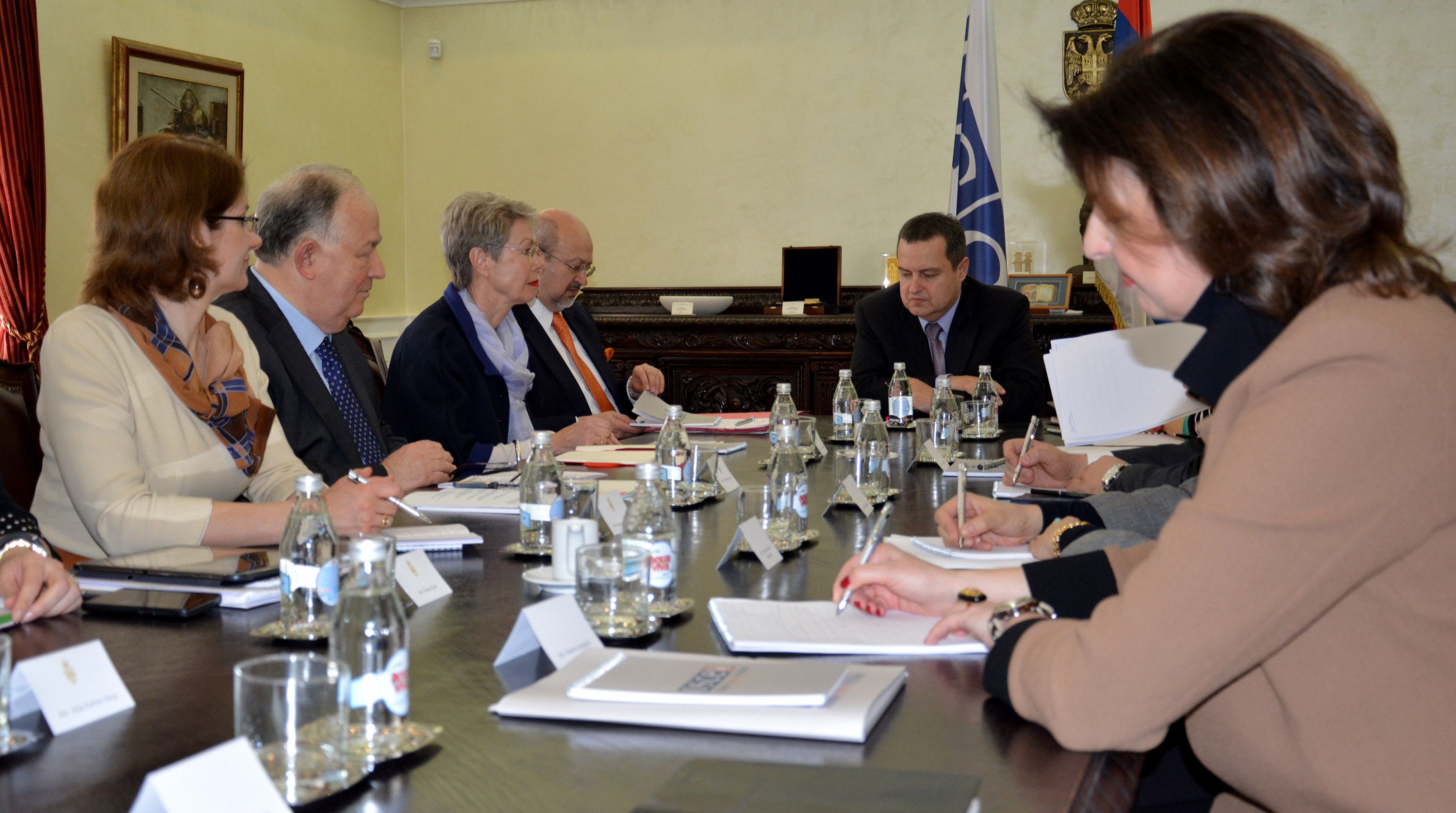



| Wednesday, 08 April 2015. | |
| OSCE Chairman-in Dacic and OSCE Secretary General Zannier at a joint consultation on resolving the crisis in Ukraine | |
| + larger fontnormal font- Smaller font |
 First Deputy Prime Minister and Minister of Foreign Affairs Ivica Dacic in his capacity as the OSCE Chairperson-in-Office held consultations today with the OSCE Secretary General Lamberto Zannier, OSCE CiO Special Representative to Ukraine Heidi Tagliavini and Head of the OSCE Monitoring Mission in Ukraine Ertugrul Apakan, concerning the OSCE activities aimed at addressing the crisis in Ukraine. First Deputy Prime Minister and Minister of Foreign Affairs Ivica Dacic in his capacity as the OSCE Chairperson-in-Office held consultations today with the OSCE Secretary General Lamberto Zannier, OSCE CiO Special Representative to Ukraine Heidi Tagliavini and Head of the OSCE Monitoring Mission in Ukraine Ertugrul Apakan, concerning the OSCE activities aimed at addressing the crisis in Ukraine.The situation in eastern Ukraine showed signs of improvement and now efforts needed to be consolidated to encourage the political process. Working groups shall be set up to that end, Head of Serbian Diplomacy and OSCE Chairman-in-Office Ivica Dacic and OSCE Secretary General Lamberto Zannier said today. “We intend to urge all sides to put those working groups in operation as early as next week”, underlined Dacic at the joint press conference following the meeting with the OSCE representatives, adding that as the current OSCE Chairman he would appoint group coordinators. “With a view to encouraging the political process, it is necessary to establish working groups that will address security, political, economic and humanitarian issues”, Dacic said. He pointed to the fact that funds and technical equipment for the OSCE Monitoring Mission in Ukraine should be provided. As the country currently holding the OSCE Chairmanship, Serbia drafted a decision on its extension. It is necessary to provide satellite imagery, unmanned aerial vehicles and terrain inspection equipment. “As the OSCE chairing country, OSCE is fully committed to assisting in addressing the crisis in Ukraine, in accordance with the Minsk agreements and in support of the political dialogue, through the Normandy Quartet and Trilateral Contact Group”, Dacic said. He said that in the period ahead a clear coordination was needed between the Normandy format and the OSCE. Dacic also said that he would invite the Head of Swiss Diplomacy Didier Burkhalter to visit Belgrade on 28 April, when Serbia would also be visited by the German Foreign Minister Frank-Walter Steinmeier. That would be an opportunity to hold the OSCE Troika meeting on Ukraine as the main topic. Zannier said that the ceasefire in eastern Ukraine was mainly observed and that this was the key stage which should be used to ameliorate the situation, in light of the positive developments, and set up the working groups, intensify talks and implement the Minsk agreements. He also highlighted the need for strengthening the Monitoring Mission, the mandate of which was extended and the number of monitors increased. He underlined that its technical capacities must be improved. “Agenda is a complex one and that is why the coordination between all key players and activities is one of the key points”, Zannier concluded. OSCE Special Representative to Ukraine Heidi Tagliavini agreed with Mr. Zannier and warned that if there were no direct contacts and talks, the situation could escalate further. |